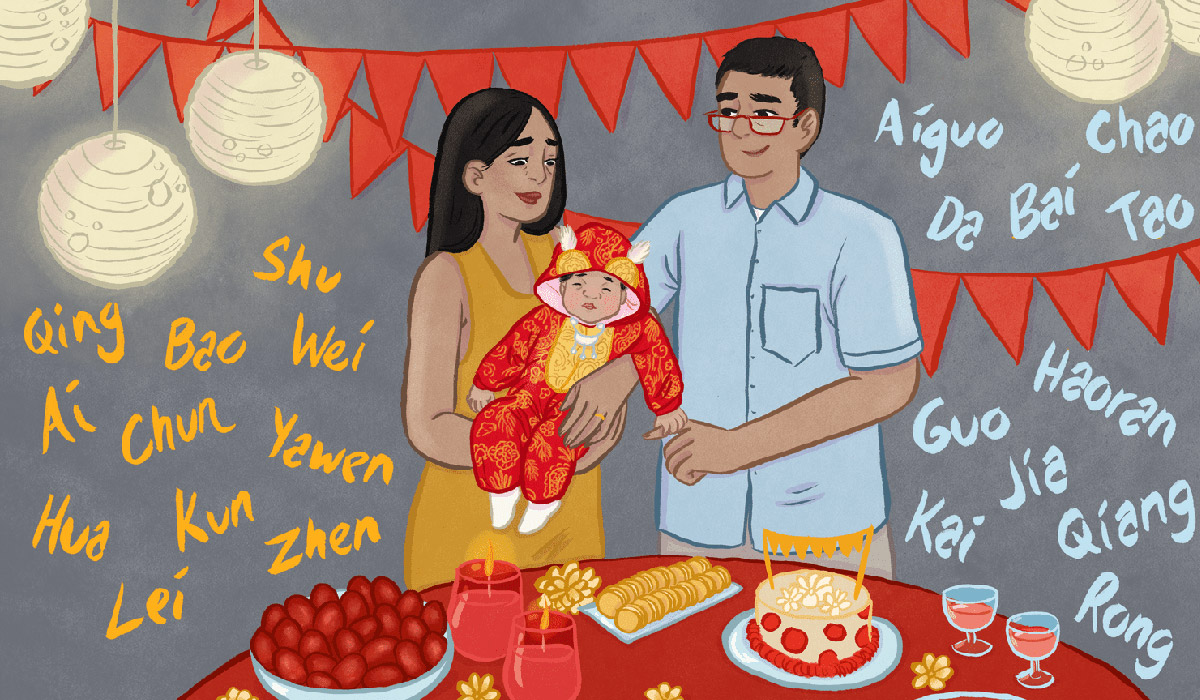In Chinese culture, names are far more than identifiers—they’re aspirations etched into language. Naming a child involves a deep sense of tradition, balance, sound, and meaning. While the family name (姓 xìng) comes first and is inherited, the given name (名 míng) is the canvas upon which parents paint their hopes. Often, those hopes differ depending on whether the child is a boy or a girl, and the characters reflect that difference with striking nuance. When you learn Chinese online, or with an online Chinese teacher, such may also be a worthy topic of being incorporated into lessons!
For girls, parents traditionally choose characters that reflect beauty, grace, modesty, or natural imagery. Many names evoke qualities like inner calm, elegance, and tenderness:
- 美 (měi) – beauty
- 婉 (wǎn) – gentle, refined
- 雅 (yǎ) – elegant
- 蓉 (róng) – lotus
- 雪 (xuě) – snow
- 瑶 (yáo) – precious jade
A girl named 雪瑶 (Xuěyáo) may evoke an image of serene beauty, like snow falling on white jade. Meanwhile, names like 婷婷 (Tíngtíng), meaning graceful and poised, are phonetically light and rhythmic—emphasizing not only meaning but auditory elegance.
For boys, the chosen characters often express strength, ambition, intelligence, or resilience:
- 强 (qiáng) – strong
- 志 (zhì) – will, determination
- 明 (míng) – bright, wise
- 宏 (hóng) – grand
- 达 (dá) – to reach, achieve
A boy named 志强 (Zhìqiáng) would carry a name meaning “strong will,” and 明宇 (Míngyǔ) might suggest someone with clarity and vastness—wisdom paired with depth.
But these naming conventions aren’t just about cultural ideals—they’re deeply linguistic too. Chinese parents often consider:
- Tone balance: avoiding a string of falling tones for a softer or stronger effect.
- Stroke count: some even consult 五行 (wǔxíng, Five Elements) or 八字 (bāzì, the Eight Characters of birth date) to align the name with the child’s destiny.
- Aesthetic symmetry: ensuring the characters look balanced on paper, especially in calligraphy.
Interestingly, some names are deliberately gender-neutral, especially in modern China. Names like 晨曦 (Chénxī, morning light) or 星辰 (Xīngchén, stars and dust) reflect poetic, open-ended meaning without being tethered to gender. This shift reflects modern values of individuality and creative expression.
And sometimes, names are practical. Since many Chinese characters share pronunciation but differ in meaning, parents must carefully select characters that sound pleasant but don’t accidentally turn the name into an embarrassing pun. A slight tonal change can make a dignified name sound like a noodle dish or a joke. In fact, language schools like GoEast Mandarin often make a point to include such information in their lessons!
Lastly, Chinese given names often carry cultural or philosophical weight, referencing Confucian virtues, nature, literature, or even classical idioms. For example, a boy might be named 博文 (Bówén)—“abundant in literature”—referencing not only scholarly aspirations but also a phrase from The Analects.
Chinese names, whether gentle or grand, reflect the depth and poetry of the language itself. For learners of Chinese, getting to know names is like unlocking a secret cultural code. Every name is a whisper of a story, a wish sent forward in time, written in strokes of heritage and heart.
For More Information, Visit Megamagazine















